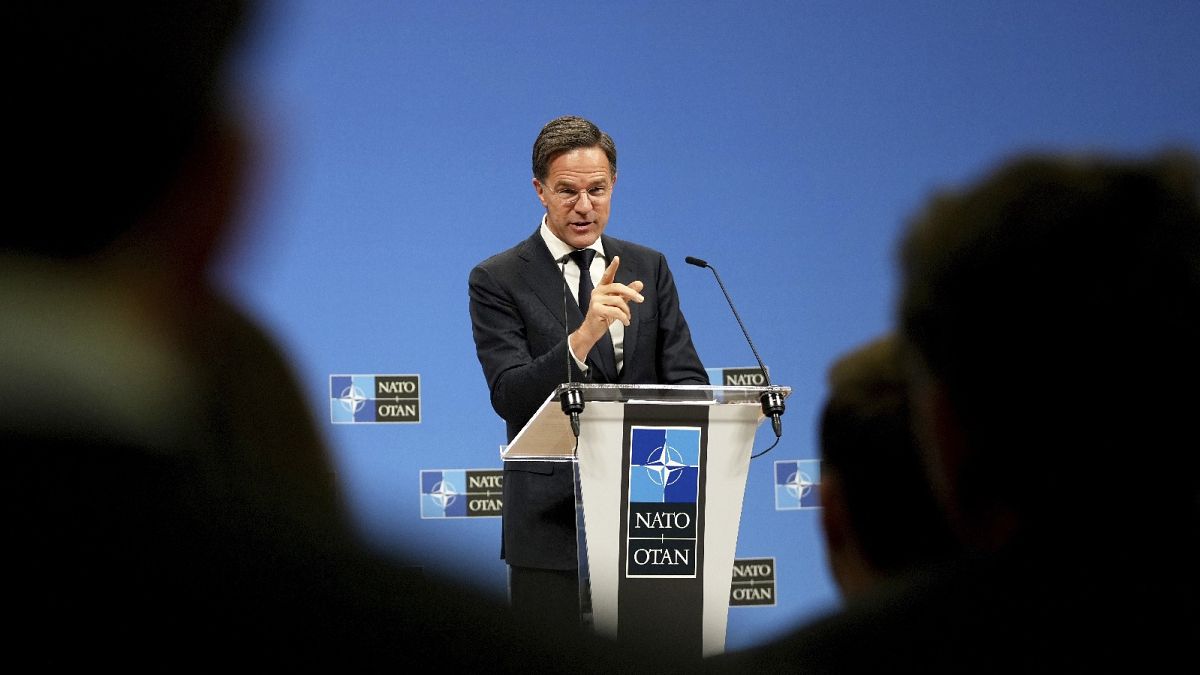Allies are keen to bolster Ukraine’s defence and footing in the war before Donald Trump retakes office in the US in just over a month.
NATO allies need to focus more on delivering military assistance to Ukraine so it can stop Russia’s slow but steady advance than discuss what a possible peace deal could look like, the alliance’s chief said on Tuesday.
Foreign ministers from the military alliance’s 32 member states are gathering in Brussels for a two-day summit with Ukraine high on the agenda.
Secretary-General Mark Rutte told reporters in a press conference hours before the start of the summit that “the most crucial thing we have to do now” is to make sure “that Ukraine, that whenever it decides to enter peace talks, will do so from a position of strength”.
“Ukraine doesn’t need more ideas on what a peace process could look like.”
“And that is what we will very much focus on the next two days, how to get more military aid into Ukraine, more missile defence into Ukraine, better coordination of everything we are doing,” he added.
The meeting will be the last one attended by Secretary of State Antony Blinken as a new US administration, helmed by Donald Trump, is due to take over on 20 January. The Republican president-elect has claimed he could stop the war within days of taking office, sparking fears Washington could cut its support to Kyiv and impose painful territorial concessions as part of a peace deal with Russia.
The momentum in the war, which has now lasted more than 1,000 days, appears to be on the Russian side, with the frontline creeping westward, while Ukraine’s offensive in Russia’s Kursk region is stalling.
Moscow’s defence in Kursk has been assisted by North Korea, which has sent over 10,000 troops to the region, according to allies. Meanwhile, Iran and China have provided Russia with military and dual-use technologies, which it has used to target civilian, and in particular energy, infrastructure in Ukraine.
‘We do have to find diplomatic solutions’
Ukrainian President Volodymyr Zelenskyy conceded on Monday to Japan’s Kyodo agency that Ukraine’s “army lacks the strength” to retake some of the territories occupied by Russia. “We do have to find diplomatic solutions,” he said.
He reiterated his call for his country to become a NATO member as soon as possible.
Ukraine has, over the past months, signed a number of bilateral security deals with Western countries but for Kyiv, no security guarantee can come close to full membership in the military alliance to deter any future Russian aggression.
“With the bitter experience of the Budapest Memorandum behind us, we will not accept any alternatives, surrogates or substitutes for Ukraine’s full membership in NATO,” Ukraine’s Foreign Ministry said in a statement released on Tuesday morning.
“Inviting Ukraine to join NATO now will become an effective counter to Russian blackmail and will deprive the Kremlin of its illusions about the possibility of hindering Ukraine’s Euro-Atlantic integration. It is also the only chance to stop the erosion of key principles of nuclear non-proliferation and restore confidence in nuclear disarmament,” it added.
The Budapest Memorandum, signed on 5 December 1994, saw Ukraine give up its nuclear arsenal in exchange for guarantees from Russia that it would not use force or economic coercion against its territorial integrity or political independence.
Rutte however said that the bilateral agreements are part of Ukraine’s path towards full membership.
“During the Washington summit [held in July 2024], we agreed on the irreversible path towards NATO,” he told reporters. “So this is happening step by step.”

